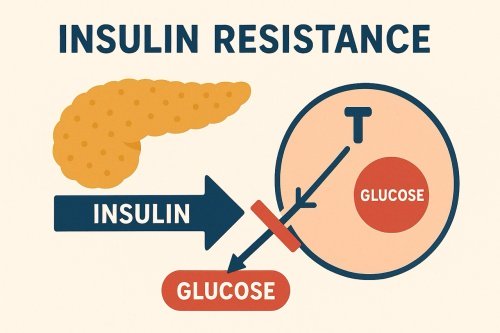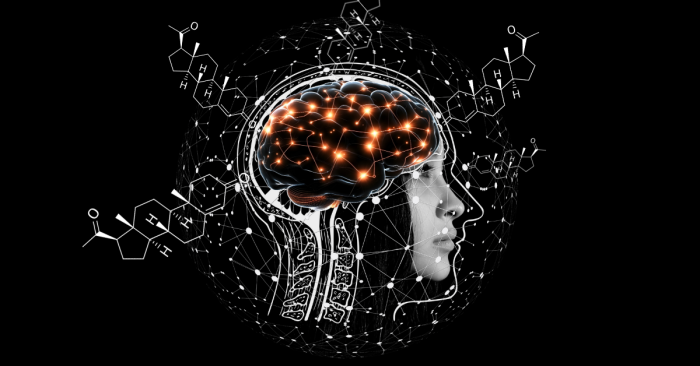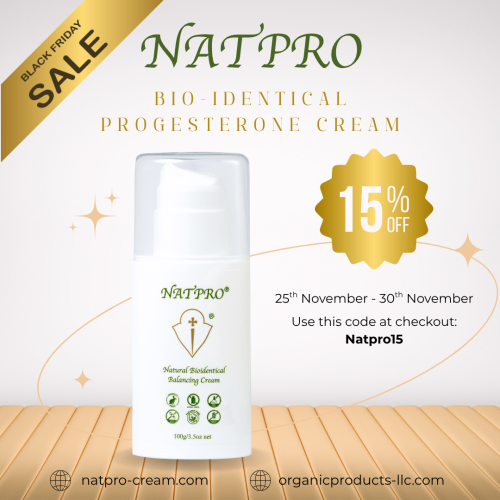Alcoholism cure
Many thousands of dollars and countless studies have been devoted to the search for an alcoholism cure and the subject of alcoholism generally. Like any addiction the blame is placed on the shoulders of the addicted individual, often declaring them weak willed.
Therefore they believe the only solution is psychotherapy, to show the person how to overcome this character trait.
But it seems the clue to addictions lies not with character, but with a disturbance in the dopamine pathway.
Dopamine is one of the major neurotransmitters, it's essential for motivation and vitality, levels rise when rewarded, resulting in feelings of pleasure. It's also essential for a normal sexual response.
This disturbance in the dopamine pathway can be due to a number of factors, not least epigenetic programming while still a foetus. Epigenetic programming changes the way genes express themselves, nothing to do with a change in DNA structure. See here, here and here.
Studies on alcoholism discovered that the genetic anomaly found to be associated with it, was also found with increased frequency in other addictive disorders. These comprise drug abuse, smoking, compulsive craving of sweet foods resulting in overeating and obesity, ADD, and pathological gambling. See here and here.
Further insults can be added when one takes into account the processed foods most people eat. Devoid of nutrition, particularly good quality protein, dopamine levels fall.
Dopamine is synthesised in nervous tissue and in the adrenals from tyrosine.
Although a non-essential amino acid, tyrosine is one of the most important. It's the precursor to the neurotransmitter dopamine, and the stress hormones adrenaline and noradrenaline. It's also the precursor to the two thyroid hormones T3 (triiodothyronine) and T4 (thyroxine), plus melanin, the pigment found in hair and skin. It's part of the enkephalin peptide involved in regulating and reducing pain, and increasing pleasure.
The requirement for tyrosine is therefore high, particularly if stressed as many are now.
A lack of protein and stress lower tyrosine levels, with a subsequent reduction in dopamine. Tyrosine is essential for any stressful situation, cold, fatigue, emotional trauma, prolonged work, sleep deprivation, it improves memory, cognition and physical performance.
Acute, uncontrollable stress depletes dopamine, leading to depression and a rise in prolactin and cortisol, tyrosine reverses this.
Stress of any kind also causes progesterone levels to drop sharply. Progesterone causes an increase in dopamine because it's a mono amine oxidase (MAO) inhibitor. MAO is an enzyme that breaks down dopamine and serotonin, with a drop in progesterone, MAO rises.
With a drop in dopamine this can lead to substance abuse and future dependance on it. One of the main factors behind this dependance are substances which raise dopamine levels...
- alcohol
- tobacco
- marijuana
- methamphetamine
- cocaine
- heroin
- glucose (ie breads, cakes, sweet drinks etc)
The rate limiting step in dopamine synthesis is the enzyme tyrosine hydroxylase. Insufficient levels of vitamin D inhibit tyrosine hydroxylase, resulting in a disturbance in the dopamine pathway.
As most people spend up to 90% of their time indoors, or covered with clothing or sunscreens, low vitamin D levels are now the norm.
A drop in dopamine increases levels of prolactin, the hormone of lactogenesis, but also an inflammatory hormone.
In excess prolactin inhibits the secretion of dopamine, reduces libido, causes hypogonadism and galactorrhoea.
Prolactin secretion is stimulated by a number of things...
- oestrogen
- contraceptives
- HRT
- antipsychotics
- tranquillisers
- Minoxidil (used to promote hair growth in men)
- some SSRI and SNRI medications
- a lack of protein in the diet
- a lack of tyrosine
- stress
Oestrogen increases mitotic and secretory activity of several cells in the pituitary, but particularly the proliferation of lactotrophs or prolactin cells.
Progesterone causes an increase in dopamine by suppressing prolactin and oestrogen.
The potent progesterone metabolite allopregnanolone increases the release of dopamine, thereby affecting mood and motivation.
Progesterone participates in the regulation of dopaminergic transmission, it also increases dopamine neuron number of embryonic stem cells. Plus progesterone protects dopaminergic neurons against degeneration induced by methamphetamine.
Alcohol intake increases oestradiol levels but decreases progesterone levels. It also increases prolactin levels which would effect changes in opioid and dopamine levels. See here, here, here and here.
A further effect of alcohol is the significant increase in total testosterone levels after intake.
Oestrogen and testosterone increase the risk of breast cancer in women. Alcohol consumption, even low amounts given time, also increase the risk. Undoubtedly because it increases oestrogen and testosterone levels in women. See here, here and here.
Excess oestrogen and testosterone, and low vitamin D causes Insulin Resistance. This is often found in people with compulsive eating and drinking habits. IR can also be caused by epigenetic changes while a foetus, usually due to a lack of vitamin D in the mother. Although a B12 deficiency, excess folic acid and a lack of taurine can cause it too. See here, here, here, here, here and here.
The potent vitamin D3 metabolite calcitriol (1,25 OH2D3), can help prevent dopaminergic neuron damage. It also increases the release of dopamine, of great benefit in dopaminergic dysfunction. Plus insufficient levels of vitamin D inhibit tyrosine hydroxylase, resulting in a disturbance in the dopamine pathway. See here, here and here.
A 2009 study found a lack of vitamin D reduces the benefits of progesterone. In fact Progesterone and Vitamin D have many similarities and appear to enhance each other.
Many women experience cravings for alcohol and sweet foods the few days prior to bleeding. This is caused by progesterone withdrawal, usually leaving oestrogen the dominant hormone. It's essential if this occurs to use sufficient progesterone to prevent the cravings.
Depression can become a problem too. Research has found that alcohol lessens the ability of progesterone to break down the enzyme monoamine oxidase. This therefore decreases dopamine levels leading to depression. See here.
There is a paradox to drinking alcohol. Studies have found it increases appetite prior to a meal, so people tend to eat more. This is probably because it drops blood glucose levels. But it doesn't appear to increase weight gain, certainly in men.
One reason given is that it increases the metabolic rate, which also causes thermogenesis. There is another paradox here too. Although in men it doesn't appear to affect weight gain, in women it does, as it affects hormone levels. Testosterone is notorious at increasing visceral fat, which causes abdominal fat gain. Oestrogen increases sub-cutaneous fat. See here, here, here and here.
Plus both oestrogen and testosterone cause insulin resistance, which is almost invariably associated with weight gain. See here, here and here.
Potential natural alcoholism cures
Women should use between 100-200mg/day of progesterone, men should use between 10-100mg/day. In severe cases more might be needed, vary the amount used following symptoms as a guide.
For more information please see How to use progesterone.
Before using progesterone it's essential to read the page on Oestrogen Dominance first.
A vitamin D test is essential. Blood levels should be 70-100ng/ml or 175-250nmol/L and not the 30ng/ml or 75nmol/L most labs and doctors regard as adequate. The minimum daily dose should be 5000iu's per day, although the latest research indicates it should be 10,000iu's per day, see here.
For more info on vitamin D levels, test kits etc see:
GrassrootsHealth
Birmingham Hospital
Supplemental tyrosine, as an alcoholism cure, should be considered too, as this counters the release of prolactin, increases dopamine levels and by the same token increases libido if the drop is caused by excess prolactin.
Start with 500g/day tyrosine in the morning, increasing by the same amount until the optimum dose is reached. If taken in excess symptoms return. The two B vitamins B3 and folic acid are co-factors in the conversion of tyrosine to dopamine. Take 100mg B3 and 300mcg folic acid too.
As dopamine works in concert with other neurotransmitters, the other amino acid precursors are indicated. Plus the B vitamins and magnesium which are often depleted in alcohol consumption.
Inositol is effective at reversing OCD if this is present. Chromium and zinc are indicated too, to stabilise blood glucose.
Rhodiola rosea, an adaptogenic herb, has the potential to enhance the activity of dopamine.
Music therapy, if not an alcoholism cure as such, appears to be of benefit.
 Feeling tired, foggy, or struggling with stubborn weight gain—especially around the waist? You might be surprised to learn that these symptoms could be linked to insulin resistance, a condition that a…
Feeling tired, foggy, or struggling with stubborn weight gain—especially around the waist? You might be surprised to learn that these symptoms could be linked to insulin resistance, a condition that a… Are you struggling with irregular cycles, unwanted hair growth, or unexplained fatigue? You’re not alone. Polycystic Ovarian Syndrome (PCOS) affects up to 10% of women of reproductive age—and many mor…
Are you struggling with irregular cycles, unwanted hair growth, or unexplained fatigue? You’re not alone. Polycystic Ovarian Syndrome (PCOS) affects up to 10% of women of reproductive age—and many mor… While progesterone is often discussed in relation to reproductive health, emerging research reveals its remarkable role in supporting brain function and protecting against neurological decline. Proges…
While progesterone is often discussed in relation to reproductive health, emerging research reveals its remarkable role in supporting brain function and protecting against neurological decline. Proges… Incase you missed it!
Today is the last day for you to claim 15% off our Natpro 100ml Dispensers. The sale ends at midnight tonight.
How to Claim Your 15% Discount:
•Shop at
Incase you missed it!
Today is the last day for you to claim 15% off our Natpro 100ml Dispensers. The sale ends at midnight tonight.
How to Claim Your 15% Discount:
•Shop at